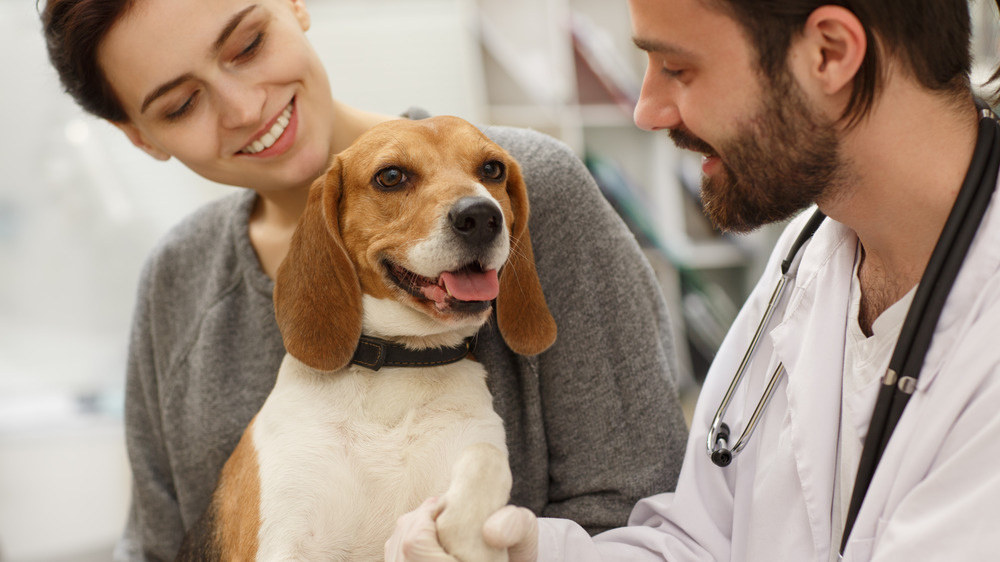Doctor Breaks Down The Truth Behind Biden's Dog Comment
President Biden's recent statement about dogs during his visit to James Cancer Hospital and Ohio State University left some scratching their heads (via YouTube). He said, "By the way: Dogs may help cure cancer. It's not a joke ... Their olfactory glands are 400 times what a human is ... to smell cancer in people's legs, in people's bodies. It's not a joke. It's a fascinating thing." But while some wondered what he was getting at, what he said is actually based in scientific, proven fact.
We spoke to Sarah Moore, DVM, director of the Blue Buffalo Veterinary Clinical Trials Office at The Ohio State University College of Veterinary Medicine about dogs' ability to detect illness in humans, and what she said may surprise those who thought Biden's remarks were farfetched. "As odd as it might sound," she said, "dogs have been making headlines recently for their incredible ability to sniff out all kinds of diseases, and certain cancers are on that list."
What role do dogs play in detecting cancer?
Moore explains that "Dogs have an incredibly refined sense of smell, estimated to be between 10,000 and 100,000 times more sensitive than that of people." She went on to address Biden's comments, saying, "Although President Biden's comments this week brought some media attention to it, the idea that dogs could detect cancer via scent isn't really a new one, in fact it was first proposed in the 1980s. Since that time, a multitude of studies have shown that dogs can actually be trained to be quite good at this. For example, with careful training, they can have accuracy as high as 98% in detecting some cancers in blood and other body fluids." That's a pretty amazing track record!
When asked about the idea that dogs can "help cure cancer," Moore explained, "The idea of dogs 'smelling cancer' really falls more under the umbrella of detecting, not treating or curing. But it turns out, President Biden might have a point in the argument for treatment as well. This is a big part of our mission at the OSU CVM Blue Buffalo Veterinary Clinical Trials Office — the idea that studying and treating pet dogs and cats with cancer or other diseases can result in information that not only improves the health of that animal but also can be applied to people to help develop new and effective cancer treatments for them too."
Studies involving dogs that could help treat human cancer
When asked if she was aware of any specific studies involving dogs that may lead toward developments in treating human cancers, Moore answered, "Our veterinarians and researchers work closely with colleagues and partners at The Ohio State University Comprehensive Cancer Center to identify unique opportunities to develop and guide new cancer treatments. Some notable examples of ongoing studies in this area include a project evaluating a new therapy to treat bone cancer that could be helpful in both dogs and children with this disease, a new approach to evaluate whether tumor margins are clean during cancer surgery, and several recently completed studies featuring medications that, after showing promise in dogs with cancer, moved on to be tested in human cancer clinical trials."
So there you have it, folks. Not only can dogs accurately detect cancer in humans, but they can also, indirectly, help researchers and doctors develop better treatments for humans, therefore, in their way, helping to treat human cancer as well. Man's best friend, indeed!


